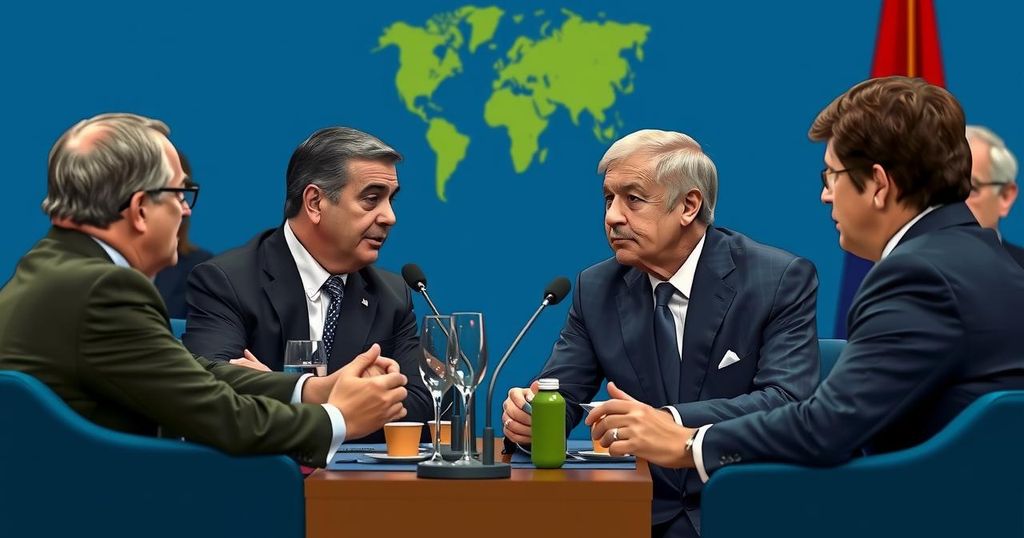At COP29 in Baku, negotiators finalized a global climate finance deal mandating wealthy nations to allocate $300 billion annually to assist poorer countries affected by climate change. This agreement, met with immediate criticism from several nations, reflects ongoing tensions in climate diplomacy as delegates expressed dissatisfaction with the proposed financial commitments amid accusations of inadequate attention to objections and concerns.
In Baku, following exhaustive negotiations that lasted three nights, a contentious global climate finance agreement was sealed with the ceremonial gavel of COP President Mukhtar Babayev. This pivotal moment occurred within the confines of Azerbaijan’s Olympic Stadium, which had been repurposed for the international climate talks. The agreement mandates wealthy nations to contribute $300 billion annually to assist impoverished countries suffering from climate change impacts. However, the announcement provoked immediate backlash; representatives from many nations, including Cuba, India, and Chile, expressed disapproval over the agreed financial provisions, labeling them insufficient.
Representatives were vocal in their criticism, with India’s Chandni Raina stating that the figure established in the agreement was “abysmally low.” She further accused Babayev of disregarding objections and announcing the agreement without true consensus, highlighting a recurrent issue in United Nations climate discussions. Activists present in the audience responded with enthusiasm to her remarks, signaling widespread discontent over the terms agreed upon.
While important negotiations unfolded, attention was drawn to Azerbaijan’s restrictive regime. President Ilham Aliyev initiated the conference with an antagonistic tone toward Western nations, which have previously criticized Azerbaijan’s human rights practices. The negotiating environment was characterized by intense discussions, as diplomats navigated the complexities of reaching consensus amidst competing interests.
During the chaotic finish to the session, many delegates were visibly fatigued, some carrying heavy luggage as they scrambled for flights, reflecting the high-stakes nature of these negotiations. Despite criticisms, Babayev expressed his achievement in uniting contrasting parties, illustrating the challenges of global climate diplomacy. As delegates began to disperse, it was clear that while a deal was reached, many felt that the fundamental issues of adequate financing and accountability remained unaddressed.
The article discusses the complexities of international climate negotiations held in Baku, Azerbaijan, focusing on the outcomes of COP29. The talks resulted in a financial agreement aimed at supporting countries most impacted by climate change, particularly those with fewer resources. The dynamics among participating countries illustrated existing tensions regarding commitments and expectations from wealthier nations, signaling a continual struggle in balancing global equity and environmental responsibilities amid rising global temperatures. The historical context of such negotiations, including lessons learned from past summits, informs the current diplomatic climate.
In conclusion, the recent climate talks in Baku revealed the enduring challenges of international climate diplomacy. While a financial agreement was achieved, many countries voiced their dissatisfaction with the terms, highlighting a continued divide between the expectations of poorer nations and the commitments made by wealthier countries. This situation emphasizes the urgent need for stronger, more equitable climate financing mechanisms to address the pressing realities of climate change.
Original Source: www.rfi.fr






